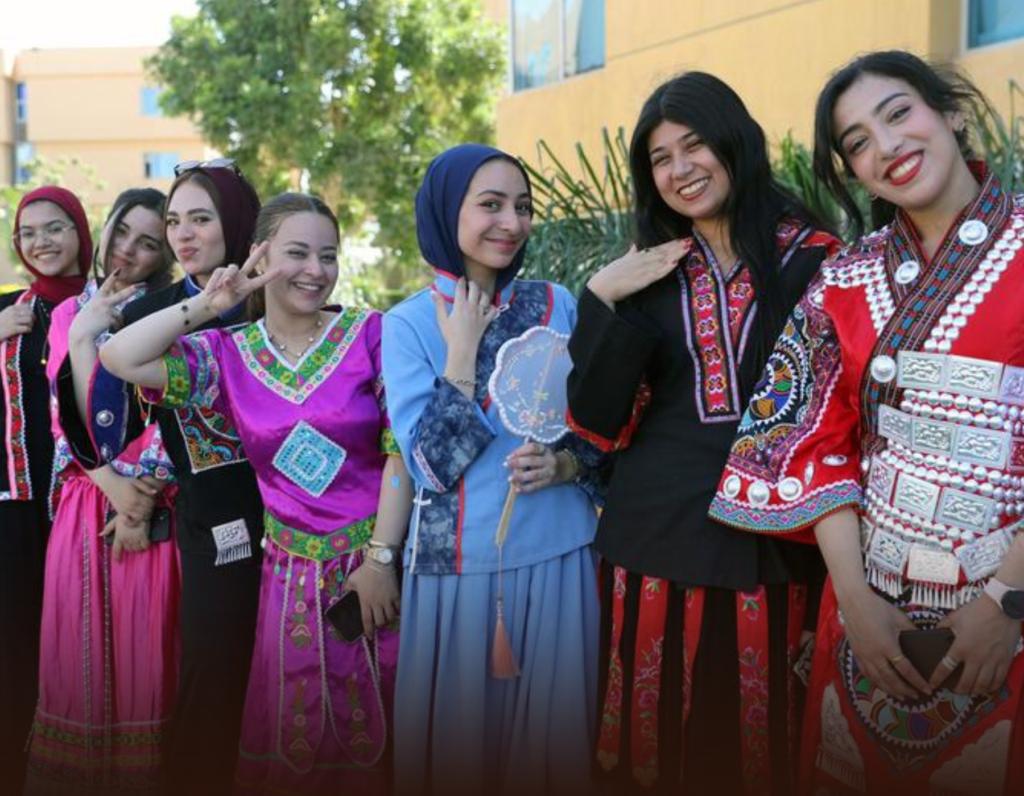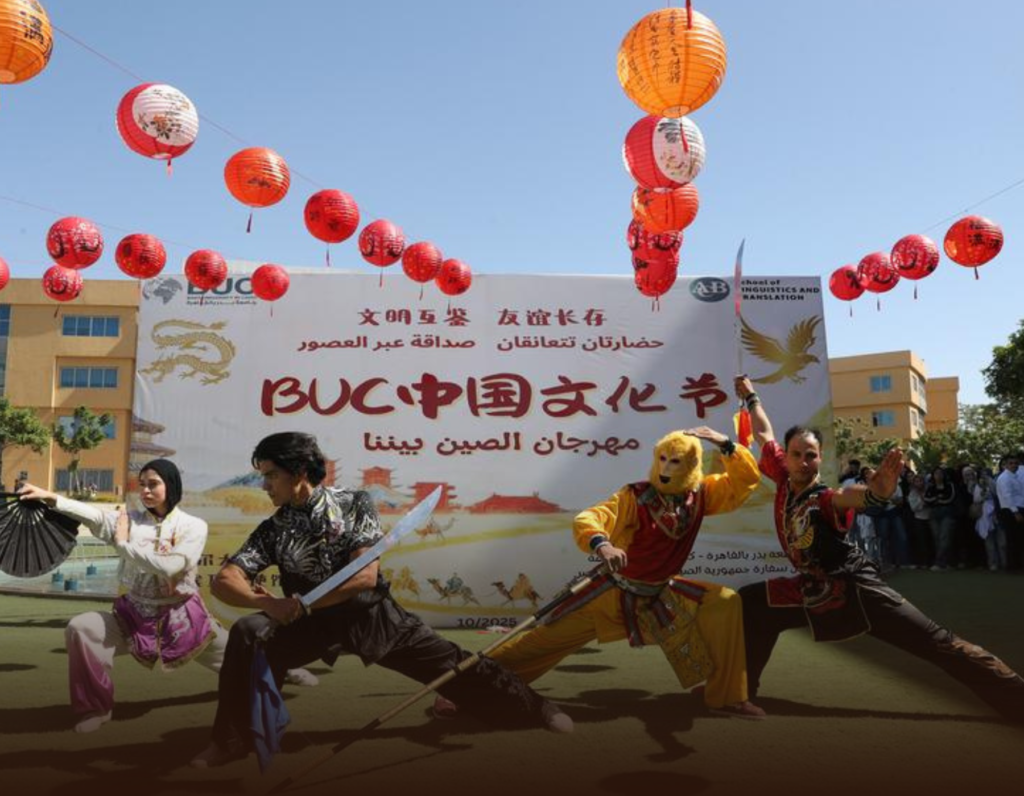In a vibrant display of cross-cultural exchange, Badr University in Cairo hosted a Chinese culture festival that brought students and faculty together to explore Chinese traditions, language and heritage. The event underlined the deepening cultural ties between Egypt and China, even as both nations expand their cooperation across education, infrastructure, trade and diplomacy.
The festival featured a Hanfu costume zone where students dressed in traditional Chinese attire and posed for photographs, among other activities. Attendees also participated in calligraphy and paper-cutting workshops, sampled Chinese snacks, and visited a tea art corner infused with the scent of freshly brewed tea. The highlight of the day was a martial arts performance by Egyptian students who then invited the audience to join an interactive session on basic moves, provoking enthusiastic applause.
In his remarks, Lu Chunsheng, minister-counsellor at the Chinese Embassy in Egypt, said that “the growing popularity of Chinese language studies is helping more young Egyptians understand, love and study Chinese cultures.” Former Egyptian ambassador to China Magdy Amer described such cultural events as “a bridge linking two ancient civilizations,” pointing to their role in fostering mutual understanding. Badr University President Ashraf El-Shihy noted that cooperation between Egypt and China is expanding in “infrastructure, trade, investment, and education under the Belt and Road Initiative,” adding that the two nations are “not just partners but friends moving forward together.”

These cultural engagements reflect the broader trajectory of Egypt–China relations. Diplomatic ties were established in 1956, and over the decades the countries have signed major strategic partnerships, including a comprehensive strategic partnership in 2014. Infrastructure and investment initiatives under China’s Belt and Road framework have matured to cover sectors spanning logistics, energy, education and space. During President Abdel-Fattah al-Sisi’s visit to Beijing in 2024, Egypt and China signed new cooperation agreements in infrastructure, aerospace and industrial zones, reinforcing the multi-dimensional nature of the relationship.
The cultural festival is part of a wider effort to deepen “people-to-people” ties and promote Chinese language and culture across Egypt’s universities. Earlier examples include Chinese cultural years, poetry contests and Confucius Institutes established in Cairo and across Egyptian campuses.
Beyond infrastructure and trade agreements, exchanges like this reinforce the shared values of academic collaboration, language learning and people-centred cooperation. As one Egyptian student put it, immersing in Chinese culture “opened my eyes to new traditions and strengthened my desire to engage with China academically and socially.” The festival thus stands not only as a celebration of heritage but also as a living example of cross-civilisational friendship, scholarship and future potential.




